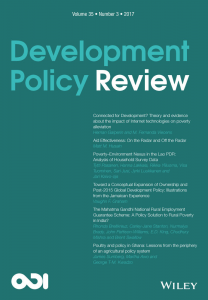Health Care Reform? If it’s not too “costly.”

Proposals are making their way to the senate floor and press conferences headed by Speaker Pelosi, as well as prime-time addresses by President Obama are clearly meant to remind us of the narratives to which we were exposed during the 2008 primary; these usually include facing astronomical prescription and hospitalization bills. This social problem is also intimately tied to others, such as home foreclosure, poverty and further illness. Health care reform and certainly support for or against a universal program are politically charged issues with republicans and democrats fighting it out on a daily basis in formal forums as well as in nightly news segments and between friends and family members at dinner tables and in break-rooms. So, what will it take to convince people of the need for change? The benefits of helping behavior must evoke our sympathies for those suffering and outweigh the pragmatic, often fiscally-oriented parts of ourselves that fear the costs of helping may outweigh the benefits. Following Nancy Pelosi’s July 22nd press conference, one CNN reporter framed the event with the following question: “what would you give up to get meaningful health care reform?” Similarly, David Leonhardt of the New York Times (see the link below) summarizes the issue with the question, “What’s in it for me?” How we weigh the costs and benefits of changing the system will determine the final outcome, which begs the question of whether health care reform is really at all about altruism – perhaps it is, in the end, much more about self-interest.
Placing emphasis on the costs to the American public seems to be an increasingly pervasive trend. Advertisements and many right-wing politicians lead us to ask questions such as: Do Canadians really have access to effective and efficient health care? Will this have economic ramifications that our grandchildren will be forced to live with? Is there an efficient way to transform our system? Does President Obama really have a reasonable plan given the state of the economy? What will we have to give up in order to restructure the current system? On the other side of the debate lie questions such as : How can Americans possibly continue to pay costly premiums for substandard coverage? How can we not do something about the unequal distribution of care? Isn’t our government responsible for taking care of its citizens’ health? This perspective turns our attention to questions of the sustainability and effectiveness of the current system. Ultimately, the question is whether enough members of congress and the American public can be convinced that the benefits of health care reform outweigh the costs – or vice versa.






1756-2589/asset/NCFR_RGB_small_file.jpg?v=1&s=0570a4c814cd63cfaec3c1e57a93f3eed5886c15)
In addition to the story of cost, I wonder if there are reasons why Americans might not feel empathy for the uninsured? In particular, I wonder if the linkage of health care to employment implies that those who lack health care are lazy and undeserving? If this is the case, those seeking to build empathy might have another challenge.
Thanks for a great post.
Keri
I think that’s a very important point – it’s the American Dream mentality that makes us feel like we live in a meritocracy when in fact we know that many more factors than our hard work go into getting jobs. To add to your comment – even more than employed v. unemployed, certain kinds of jobs provide the benefit of health coverage. So, yes, I certainly think that, just as we tend to assume that those who have jobs, especially high-paying jobs, are deserving and those who are unemployed are lazy or inept, we also link all the benefits that come along with particular kinds of occupations to this inaccurate notion of America as a meritocracy. And this is an American social problem – if we compare ourselves to the French or the Canadians, for instance, there are certainly similar assumptions about deservingness or laziness BUT they are not intimately linked to health care in the same way, since medical coverage is considered a universal right and not tied to employment status, student status and wealth in the same way. So, yes, I agree that our assumption about people’s worth is unfortunately very difficult to detach from the debate about health care. Thanks for bringing up that point!
Dena